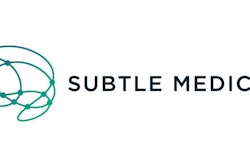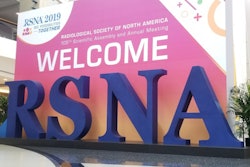Thursday, December 2 | 9:30 a.m.-10:30 a.m. | SSNR14-2 | Room E353B
An artificial intelligence (AI) algorithm can enable high-quality contrast-enhanced brain MRI exams to be acquired using only 10% of the normal dose of a gadolinium-based contrast agent (GBCA), according to this multicenter clinical study.Researchers from AI software developer Subtle Medical and Stanford University developed a deep-learning algorithm that can -- using precontrast and postcontrast image acquisitions at 10% of the standard gadolinium dose -- generate synthetic images that approximate images acquired with a full gadolinium dose.
The algorithm was trained using 3D T1-weighted images acquired from 119 patients from three institutions and three scanners using different protocols. Next, three board-certified radiologists with 10, 15, and 23 years of experience, respectively, evaluated 50 full-dose and 50 deep learning-synthesized images for tumor category, image quality, and artifacts.
The readers had substantial levels of agreement on tumor category using the synthesized images. In addition, the synthesized images were deemed similar or better than the ground-truth images for both image quality and artifacts.
"Given the growing concerns over the use of gadolinium-based contrast agents, [deep learning] can reduce contrast dosage in diverse clinical settings," wrote presenter Srivathsa Pasumarthi Venkata of Subtle Medical and colleagues.
You can assess these results for yourself by viewing this presentation on Thursday morning.





















